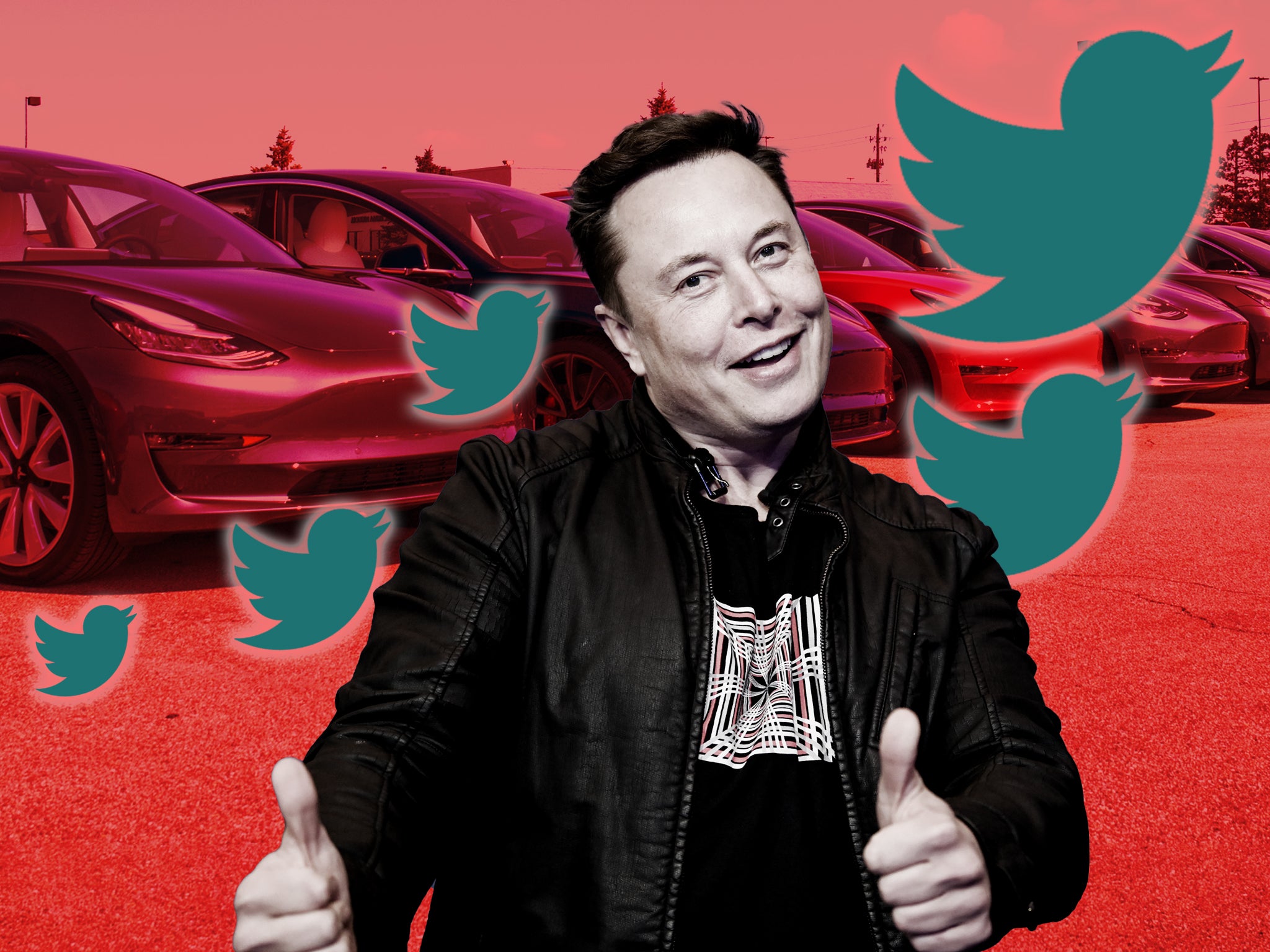Elon Musk’s losses earn him a place in the record books. Lessons learned? Not a chance
Tesla’s shares have taken a bath and so has Elon Musk’s wealth. But Wall Street continues to indulge petulant tech bros, writes James Moore


When it comes to the spectacular decline in Elon Musk’s wealth, there’s enough schadenfreude to fill (nearly) every can of beer at a Downing Street lockdown party hosted by Boris Johnson. His losses have even been certified as a Guinness World Record.
Given the way he carries on, is the joy at his losses in some quarters even shameful?
Forbes has put the decline at $182bn (£150bn) but some commentators think it could be as much as $200bn (£164bn). With billionaires, whose personal affairs are often more complex than those of their companies and many small countries, it’s not all that easy to tell.
He is still, of course, filthy rich. That goes without saying. But he might be even richer if there was someone around to say: “Elon, mate, just keep your head down for a bit. Take some time off from tweeting. Run your businesses instead.”
A big chunk of Musk’s wealth is largely a function of the value of Tesla’s paper. His net worth is heavily dependent on the performance of shares in the electronic car maker in which he holds a stake of just over 13 per cent. He also runs it. Or at least, he’s supposed to.
Musk has been selling large tranches of Tesla shares, apparently as a result of his quixotic bid for Twitter, which he tried and failed to get out of and had to dip into his own pocket to help finance. Twitter is now also taking up an inordinate amount of his time.
With questions being raised about his focus, the acquisition prompted a sharp fall in Tesla’s shares and no wonder. Elon Musk was once the company’s great asset. He was almost a super brand in his own right, with a legion of excitable internet fanboys cheering him on and a legion of excitable investors falling over themselves to back him with their cash. Tesla’s market value ballooned. Soon it was streaking past General Motors and every other car maker of note.
It is still worth a substantial multiple of GM. But today the share price graph doesn’t look all that different to that of Bitcoin. No really, call up the five-year performance of the company and the cryptocurrency on Google.
Both graphs have the look of rides on one of those stomach-churning rollercoaster thrills Disney park bosses install to tempt youthful visitors into queueing for half a day or more. There is a long, flattish but gently rising bit at the start, before a sudden race uphill. Higher, higher, higher. Then – weeeeee! – we’re going down again. Please! My stomach’s in my mouth. I’m going to be sick.
The stunning success of Google, Amazon, and the rest led to a desperate search for the next big thing. Wall Street runs on fear and greed. The fear of missing out meant tech bros were lauded, indulged and then indulged some more.
You want a silly salary package? (Musk’s gazillion-dollar deal was taken to court) Sure! You want to run the business as your personal fiefdom with no meaningful oversight from a board, which is supposed to look after your shareholders? Go right ahead. We’ll gather up some yes-men for you.
This happened with Travis Kalanick at Uber too, that is until a string of scandals forced his backers’ hands and led to his ousting.
In the case of Musk and Tesla, that’s harder to accomplish. It’s a much bigger business at a later stage. Would it even be possible to separate him from it? Far easier for investors to just wash their hands of the thing and cut their losses. Or book their profits, because there are plenty who will still have made a packet from investing early on.
You’d like to think that institutions would have learned something from all this but that, I’m afraid, is doubtful. The desperate search to jump on the next big at ground level means there will be more like this.
Musk might yet serve up another rollercoaster. He has a dizzying array of businesses and one of them, SpaceX, has been generating talk of flotations and fancy valuations.
A recent tender offer, allowing employees to sell stock to investors, valued the company at $143bn. Its satellite-based Starlink internet service has quadrupled its user base in a year without anything like the sort of marketing push normally required to secure such rapid growth.
For all his failings, Musk is still a highly talented businessman. On the other hand, he’s also still Elon Musk. Once the attachment of his name to something seemed like a surefire guarantee of stellar returns. Now? Not so much.






Join our commenting forum
Join thought-provoking conversations, follow other Independent readers and see their replies
Comments